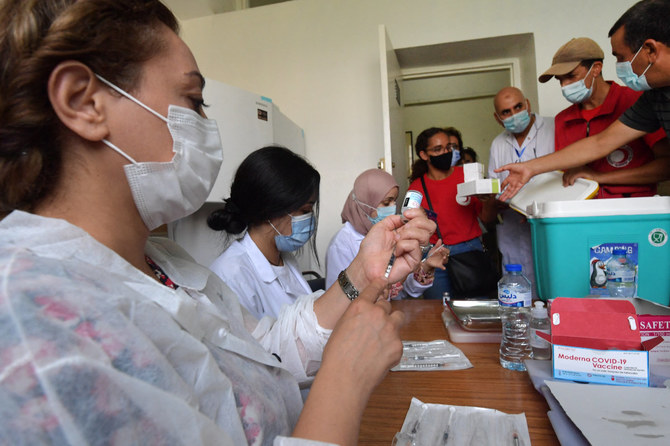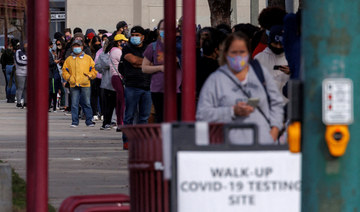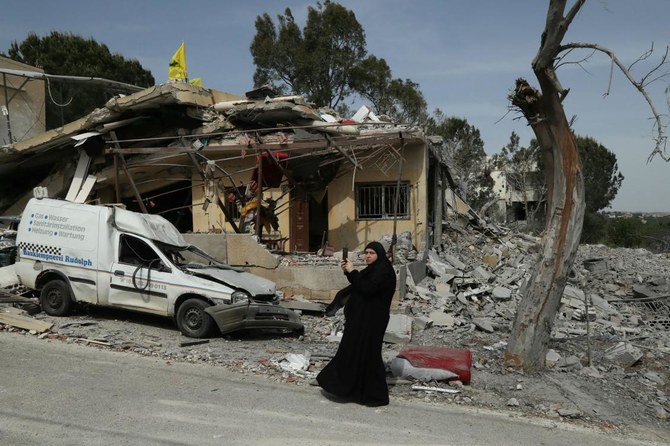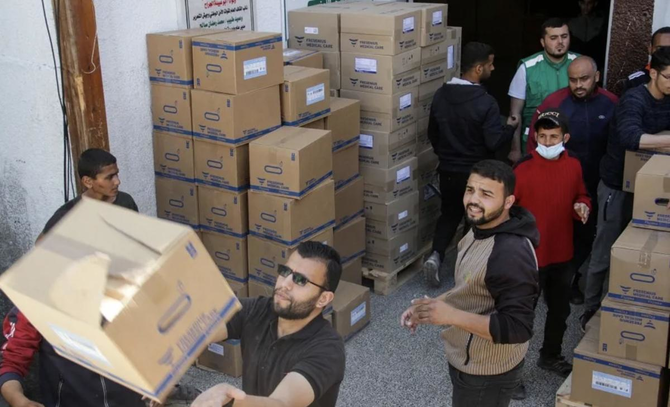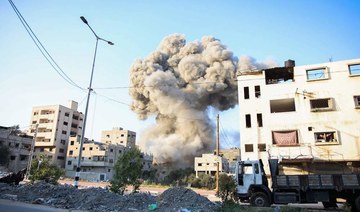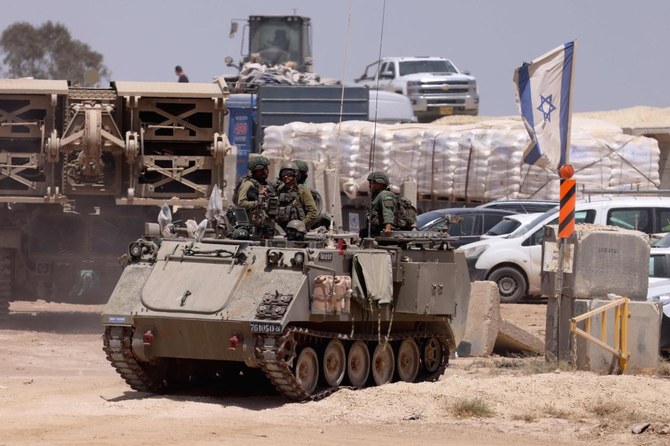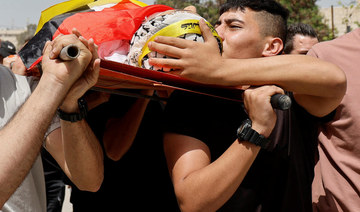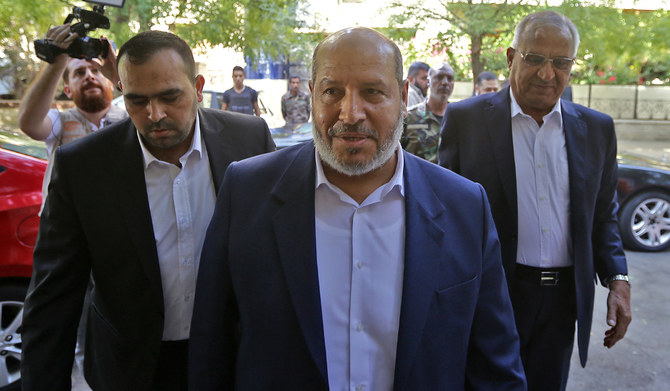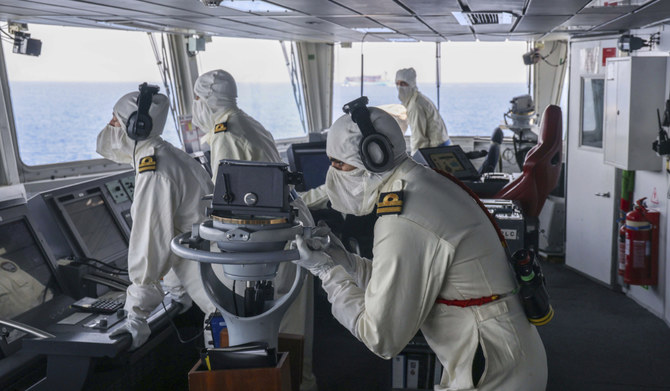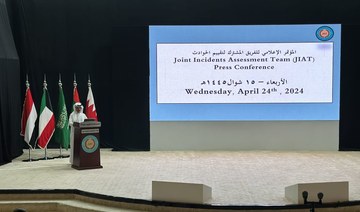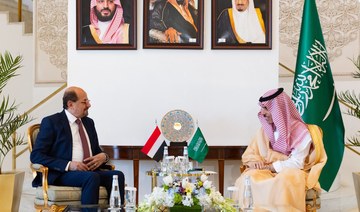DUBAI: For many, New Year’s Eve festivities were marred by concerns over the latest COVID-19 variant, omicron, and the resulting stresses of PCR tests, flight cancellations and uncertainty over possible lockdowns.
One popular meme that did the rounds over the holidays captured the pervasive sense of deja vu with the punchline: “The year 2022 is pronounced 2020 too,” hinting at a return to the stringent restrictions of two years ago.
The words quickly proved prophetic. Several countries have implemented partial and even full lockdowns after omicron sent the number of coronavirus infections to record highs, while others have tightened restrictions on indoor gatherings and travel.
As a result, the commercial aviation sector has taken another financial hit, with more than 8,000 flights canceled worldwide. Events, concerts and social gatherings planned to mark the new year were also disrupted.
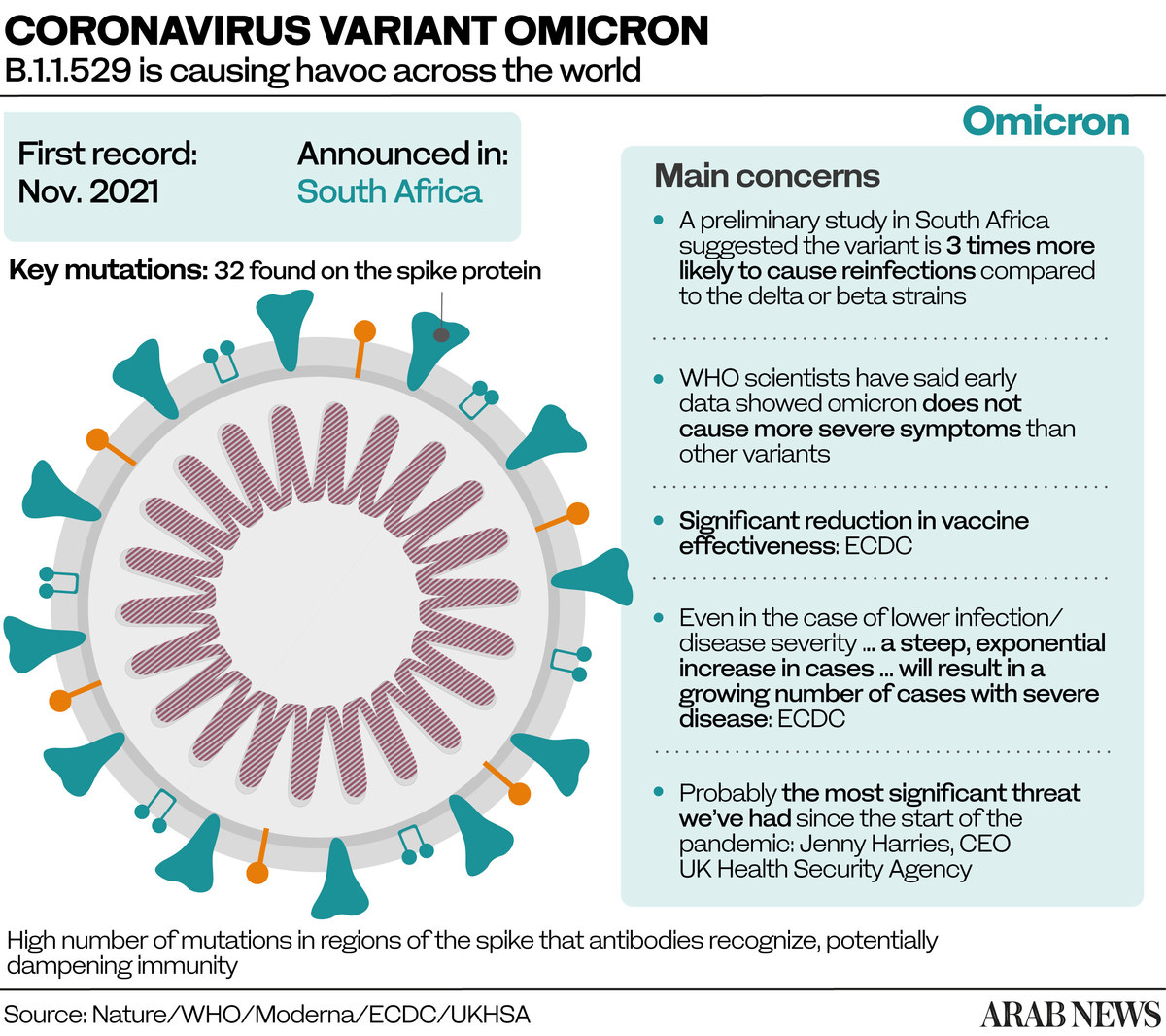
Chaos created by the newly dominant variant, and news of potentially more transmissible, vaccine-resistant strains appearing in France, Israel and Cyprus, has many people wondering whether it is time to surrender to the idea of herd immunity.
“Herd immunity, if it exists, can be achieved in two ways. One, through widespread infection, or two, through widespread vaccination,” Dr. Richard Kennedy, co-director of the Mayo Clinic’s Vaccine Research Group, told Arab News.
Wary of imposing further restrictions and undermining economic recovery, several governments are showing tolerance for high rates of infection, perhaps in the hope of achieving herd immunity. But as the well-worn phrase puts it, hope is not a strategy.
“Relying on widespread infection is an incredibly bad idea,” Kennedy said. “Infection causes symptomatic disease, hospitalization, death and leads to more variants. In fact, the only time variants can arise is when someone is infected.”

Dr. Richard Kennedy. (Supplied)
He added: “The combined cost in terms of human lives, human suffering and societal disruption is simply not worth it. Especially when this route also has a greater chance of prolonging the pandemic or making it worse, depending on the characteristics of the variants that will inevitably arise.”
Indeed, as more of the world develops greater immunity, either through infection or vaccination, Kennedy says, there will be more pressure on the virus to mutate, with no guarantees that future variants will be less severe.
“This virus is a microscopic parasite that needs human cells to survive and reproduce,” he said. “It doesn’t have feelings or emotions. It doesn’t care if you live or die once infected. It simply does what it is genetically programmed to do.”
Nevertheless, there is a selective advantage for milder variants to become dominant. If a viral strain kills a patient quickly, the time window for it to transmit to other hosts may be too brief, thereby threatening its own survival.
By contrast, slow-burners such as omicron “do an excellent job of infecting someone, reproducing and spreading to new victims,” Kennedy said.
Experts say governments should not be complacent about omicron. The World Health Organization has given warning that it is wrong to describe the variant as “mild” as it is still “hospitalizing people and killing them.”
Although the virus is not under any particular pressure to become more or less aggressive right now, there certainly seems to be an incentive for new variants to be more transmissible — as seen with omicron.
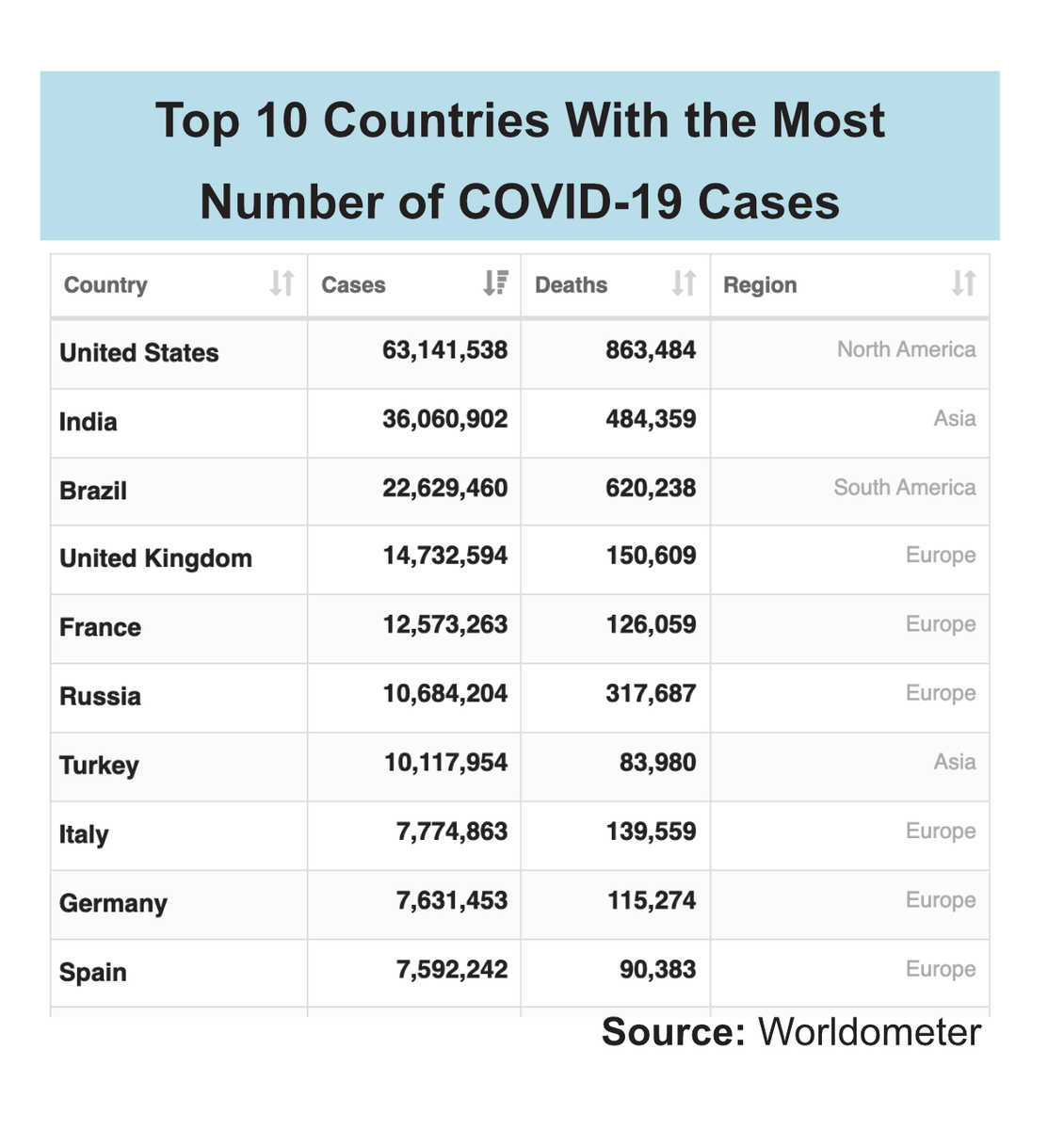
Caption
The US reported 1.35 million new coronavirus infections on Monday, the highest daily total for any country in the world. The record in new cases came the same day as the country saw the number of hospitalized COVID-19 patients hit an all-time high.
In Saudi Arabia, daily cases more than doubled in just two days in the first week of January, pushing authorities to again enforce mask wearing in public spaces and reimpose preventive measures at the Great Mosque of Makkah for Umrah pilgrims.
Infections in the UAE have risen steadily since early December, when case numbers were as low as 50 per day. The number of daily positive cases (in a population of 10 million) is now regularly crossing the 2,500 mark, placing pressure on testing centers and prompting more people to seek booster jabs.
Elsewhere in the Gulf, the number of daily COVID-19 cases has crossed the 1,000 threshold in Qatar, Bahrain and Kuwait. Qatar has reintroduced remote learning at schools and colleges, while a ban on public events has been imposed in Kuwait.
Even as omicron infections explode regionwide, Dr. Abdullah Algaissi, a virologist and assistant professor at Saudi Arabia’s Jazan University College of Applied Medical Sciences, is confident that GCC countries have efficient systems in place to resist emerging coronavirus strains.
All GCC countries are close to, or have passed, the 70 percent vaccination mark, thereby lowering the susceptibility rate of their populations to severe illness caused by the virus, he said.

Dr. Abdullah Algaissi. (Supplied)
“GCC governments have controlled three waves of COVID-19 better than other regions, and it will be the same with omicron,” Algaissi told Arab News.
“We can expect to see the number of cases increase, and eventually we might see a high number of deaths, but the overall effect of omicron will be lower in the GCC than in other countries.”
Algaissi is confident the omicron wave will be short-lived and that the worst of the pandemic is over.
“My theory is that it will be downgraded to an endemic disease, meaning the disease becomes less of a concern because fewer people will be susceptible to it and we will have the tools to deal with it,” he said.
The distribution of a “universal COVID-19 vaccine” — now in the testing phase — will be critical to eliminating all variants, thereby hastening the transition from pandemic to epidemic, Algaissi said.
“We can predict certain mutations in the virus, and in a few years we may have a vaccine that can protect us from any variant that may emerge in the future, similar to the universal flu vaccine,” he said.
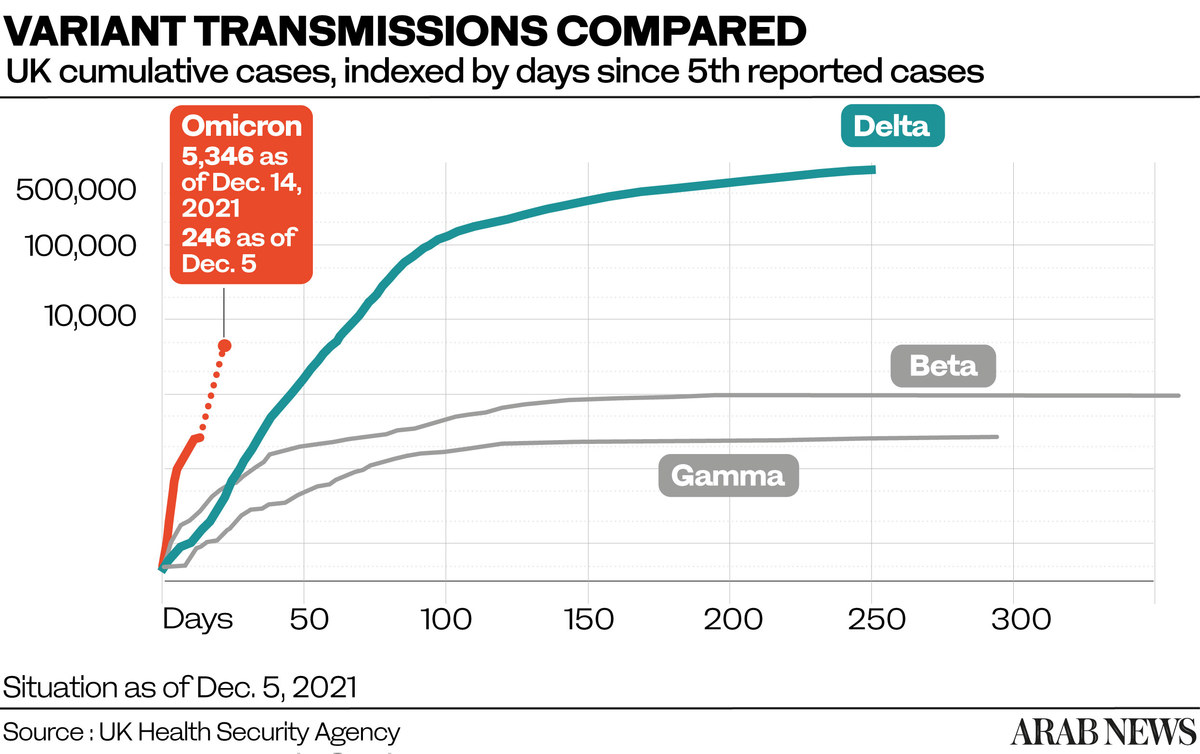
Algaissi does not rule out a new vaccine-resistant strain emerging from populations with low vaccination rates, resulting in a fifth wave. However, he thinks any subsequent COVID-19 wave will be brief.
Kennedy, of the Mayo Clinic, is less sanguine about the future, cautioning that the world may struggle to fend off the novel coronavirus and its assorted mutations for years to come.
“The human race had a window of opportunity to contain and eradicate this virus. That window is rapidly closing if it is not closed already. We now have to find a way to live with the constant presence of SARS-CoV-2,” he said, using the scientific name for the novel coronavirus.
While the future remains uncertain, Kennedy predicts progress through new vaccines and antivirals, variant-specific vaccines and better treatment options, but also expects major setbacks.
“Because of human nature, most countries have had disjointed, intermittent and rapidly changing responses. This has reduced the effectiveness of these control measures.”

Progress through new vaccines and antivirals offers hope amid uncertainties over the raging pandemic. (AFP)
In practical terms, what this means is that with the resumption of international travel, a country with a high vaccination rate surrounded by neighbors with low vaccination rates is still going to experience problems. Which is why improvements in the distribution of vaccines to the developing world will be paramount.
“This is a global issue that requires a global solution,” said Kennedy. “When we talk about herd immunity, we must interpret that to mean global herd immunity. Nothing short of that will end the pandemic.”
However, he sees a future in which large segments of the population, far from rising to this challenge, continue “to ignore logic, facts and common sense.”
Kennedy said politics would continue to drive each countries’ response, and striking a stark cautionary note, added: “We will see individual countries cobbling together a unique pandemic response that is driven in part by facts and science and in part by emotion and public perception.”




